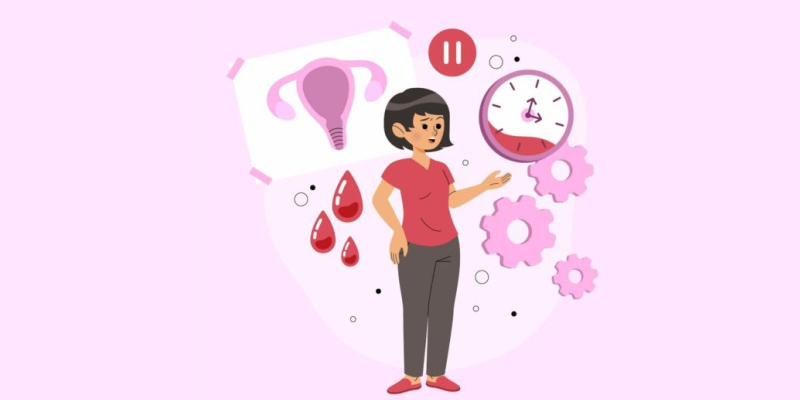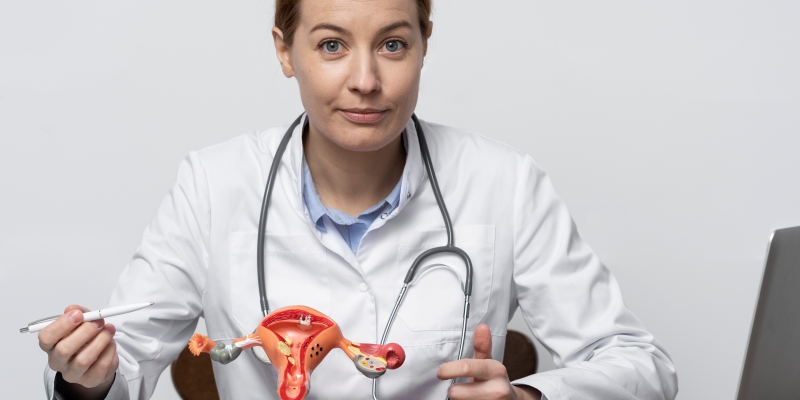Author: Dr. Tejinder Kaur
MBBS, Diploma in Hospital Administration, Diploma of National Board training, Fellowship in Reproductive Medicine
Consultant: Obstetrician & Gynaecologist at Motherhood Hospital, Mohali
Empowering Girls – Fostering Healthy Conversations about Puberty:
Puberty, a critical phase in a girl’s life, signifies a transition not only in her physical form but also in her emotional and psychological realms. In the Indian context, this period is often shrouded in silence and unease, making it imperative for parents and educators to step in with guidance and openness. As per Author: Dr. Tejinder Kaur, MBBS, Diploma in Hospital Administration, Diploma of National Board training, Fellowship in Reproductive Medicine, Consultant: Obstetrician & Gynaecologist at Motherhood Hospital, Mohali, by understanding the multifaceted nature of puberty, adults can play a pivotal role in easing the journey for young girls. This phase, marked by significant growth and challenges, calls for an informed and empathetic approach to help girls navigate these changes confidently and knowledgeably.
Importance of Fostering Open Conversations about Puberty
In many Indian households, the topic of puberty is treated as taboo, leaving young girls bewildered and apprehensive. To counter this, initiating healthy and open dialogues about the physical and emotional changes during puberty is essential. Such conversations not only demystify this natural process but also empower girls to articulate their feelings and seek necessary guidance. Embracing these discussions paves the way for a more informed, confident approach to the physical and emotional transformations during puberty, fostering a positive self-image and a sense of preparedness among young girls.
Creating a Supportive Environment
Encouraging Open Dialogue Starting conversations about puberty can be daunting, but it’s crucial in creating a supportive environment. Parents and educators should engage in open dialogue with girls, using simple, relatable language to explain the changes they will experience. It’s important to provide a safe space where girls feel comfortable asking questions and expressing their concerns. Creating such an environment requires patience, understanding, and reassurance, ensuring that young girls feel heard and supported.
Deepening Understanding Through Dialogue
Building on initial conversations, it’s essential to deepen understanding by discussing more specific aspects of puberty. Topics like menstrual health, emotional fluctuations, and body image should be introduced gradually and handled with sensitivity. Parents and educators can use resources like books or educational videos to aid these discussions. Ensuring that girls have access to accurate and comprehensive information is key to helping them navigate puberty with confidence and ease.
Understanding Emotional Well-being
Emotional well-being is a critical aspect of navigating puberty. Parents and educators should acknowledge and address the range of emotions that girls may experience during this time. Open conversations about feelings, mood swings, and self-esteem are important. Adults should offer a listening ear, provide comfort, and foster a positive self-image. Encouraging girls to express themselves and validating their emotions plays a significant role in their emotional development.
Fostering Emotional Resilience
In addition to understanding emotional well-being, fostering emotional resilience is vital. This involves teaching girls coping mechanisms for stress and anxiety, such as mindfulness or journaling. It also includes promoting a healthy lifestyle, including regular exercise and a balanced diet, which can have positive effects on emotional health. By equipping girls with the tools to manage their emotions effectively, parents and educators can help them develop resilience and a strong sense of self.
Educating on Physical and Emotional Changes
Explaining the Physical Changes Education about the physical aspects of puberty is essential for young girls. It involves explaining the development of secondary sexual characteristics like breast growth, menstrual health, and the appearance of pubic hair. In India, where cultural misconceptions often obscure these topics, providing clear, factual, and age-appropriate information is paramount. Such education helps demystify bodily changes and equips girls with the necessary knowledge to manage these changes. Parents and educators should approach this topic with sensitivity, using straightforward, non-alarming language, and progressively deepening the discussion as the child’s understanding grows.
Navigating Emotional Changes
Alongside physical development, puberty is characterized by a myriad of emotional changes. It’s vital for parents and educators to guide young girls through these emotional shifts, which can include mood swings, increased sensitivity, and self-consciousness about their changing bodies. Open discussions about these emotional experiences should be encouraged, emphasizing that these feelings are normal and part of growing up. Activities that promote self-esteem, such as arts, sports, or journaling, can be beneficial. A supportive approach in these conversations will aid young girls in developing a balanced and healthy emotional perspective during puberty.
Promoting Hygiene and Self-Care
Hygiene Practices During Puberty The importance of hygiene during puberty cannot be overstated, especially in the context of menstrual health. It’s crucial for young girls to understand the basics of menstrual hygiene, including the use of sanitary products and the importance of regular bathing. In India, where discussions about menstruation are often limited, clear and practical guidance is essential. This education should be imparted in a sensitive and straightforward manner, helping girls to manage their personal hygiene with confidence and independence.
Furthering Hygiene Education
Expanding on basic hygiene practices, it’s important to discuss broader aspects like the significance of cleanliness during menstruation, proper disposal of sanitary products, and maintaining general body hygiene. Addressing these topics helps dispel myths and misconceptions, providing young girls with a complete picture of hygiene management. This comprehensive approach not only fosters personal responsibility but also contributes to overall health and well-being.
Self-Care and Wellness
The transition through puberty is accompanied by an increased need for self-care, encompassing both physical and mental health. Encouraging a balanced diet, regular exercise, and adequate sleep is essential for physical development. Additionally, activities that support mental health, such as meditation, reading, or pursuing hobbies, play a vital role. These practices not only aid in physical growth but also help manage the stress and emotional fluctuations that often accompany puberty.
Promoting Holistic Wellness
Holistic wellness during puberty extends beyond physical health to include emotional and social well-being. Parents and educators should encourage practices that foster self-esteem and body positivity, helping girls to embrace their changing bodies. Discussions on the importance of a supportive social circle, engaging in community activities, and developing a healthy lifestyle contribute to a well-rounded approach to self-care. This holistic focus ensures that young girls are equipped to handle the challenges of puberty with resilience and positivity.
Fostering Peer Support and Community Involvement
Building a Supportive Peer Network Peer support plays a vital role during puberty, offering a sense of understanding and shared experience. Encouraging open discussions among peers helps young girls realize they are not alone in their experiences. Schools and communities in India can foster this support by organizing group activities or discussion forums, providing a platform for girls to connect and share. Such a network can alleviate the feeling of isolation and build a supportive community, making the journey through puberty less daunting.
Community and School Involvement
Schools and community organizations are instrumental in providing comprehensive puberty education and support. In India, where traditional norms may restrict these conversations, organized efforts by schools and communities can make a significant difference. Workshops, seminars, and resource distribution can provide girls and parents with much-needed information and guidance. This active involvement helps break down cultural barriers, allowing for a more open, informative approach to discussing puberty, thereby enhancing the overall support system for young girls.
Empowering Girls for the Future Navigating puberty is a significant milestone in a girl’s life, bringing physical, emotional, and psychological changes. By actively promoting open discussions and providing comprehensive education on these aspects, we empower young girls to embrace this journey with confidence and knowledge. Motherhood Hospitals plays a pivotal role in this endeavor, offering resources and expert guidance to ensure that every girl receives the support and understanding she needs. Their commitment to fostering healthy conversations about puberty exemplifies their dedication to the well-being of girls in India. Let’s join hands with institutions like Motherhood Hospitals to ensure a supportive, informed environment for every girl stepping into this transformative phase.
If you are on the verge of menopause or are going through menopause along with urinary symptoms, consult Dr Tejinder Kaur at the Motherhood Hospitals.
At Motherhood Hospitals, we have a team of experienced supers specialists backed by the latest infrastructure and facilities. We have the best gynecologist in Mohali. We are experts in handling complex deliveries, gynecological, and other surgeries including a range of laparoscopic surgeries.
Do make an appointment with the best woman’s care hospital in Mohali at a center closest to you. Meet with our doctors who will carry out the required investigations, diagnose the issue, and recommend the most appropriate treatment, enabling you to lead an active life.
If you wish to get in touch with Dr. Tejinder Kaur, please book your appointment here.


 Toll Free Number
Toll Free Number
















